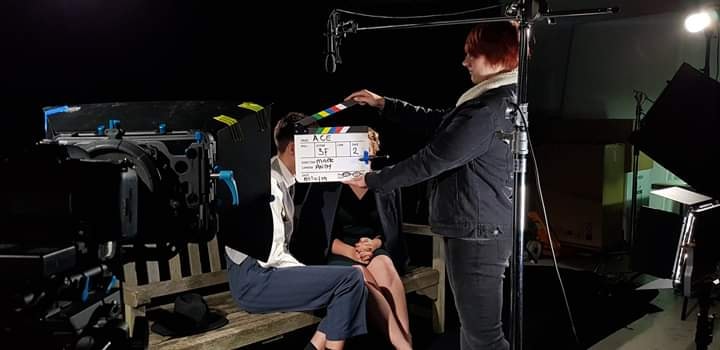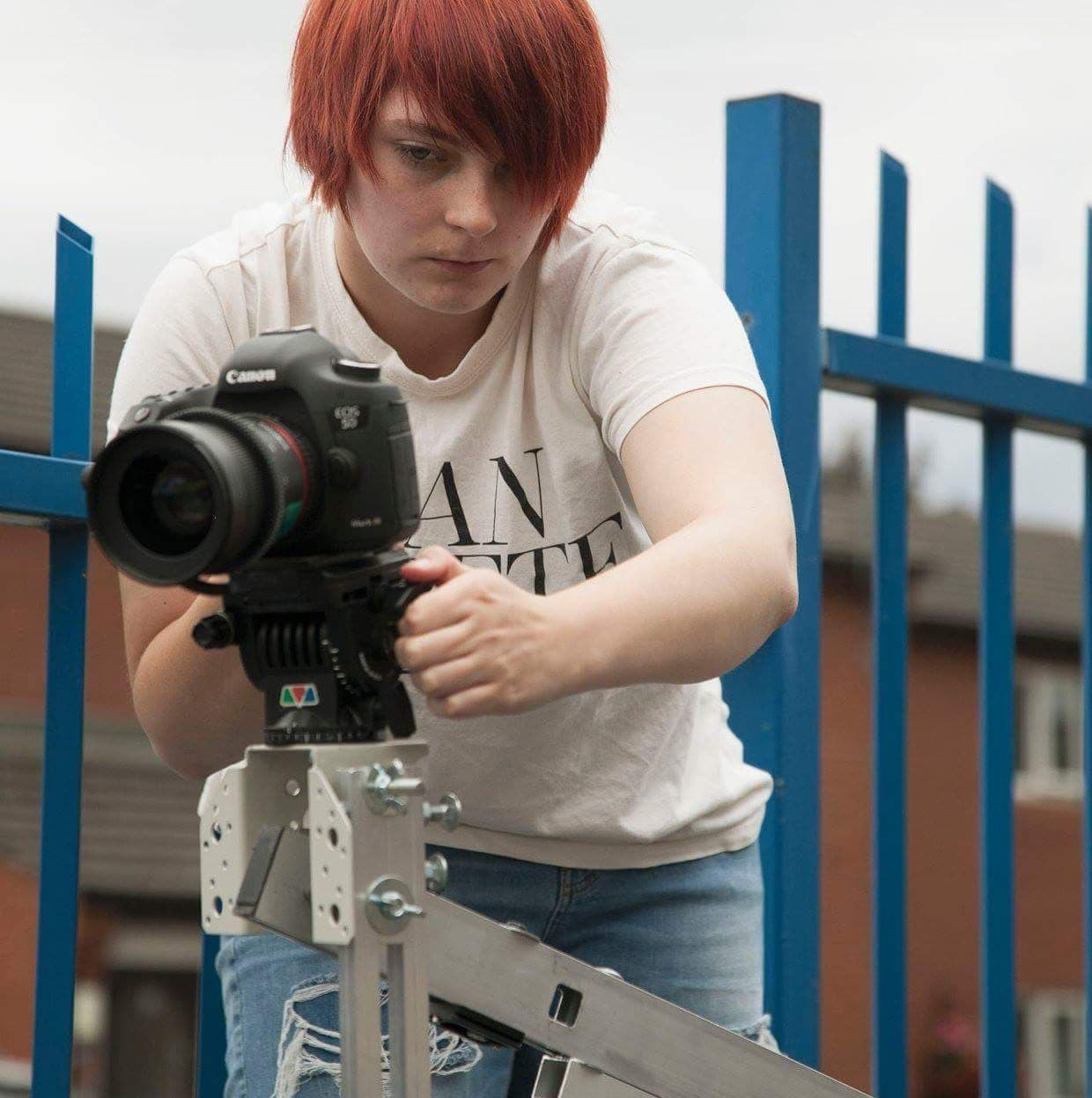From age 16, I knew I wanted to work in the film industry. I had always been fascinated with films and how they were made. My family would rent videos every weekend, and we watched a huge variety of films. As I got into my teens I started going to the cinema, and then took art and photography studies followed by a film and television degree. I found my love for the camera early, and I was determined to work in the field.
My own entry to the industry has been slow and varied. After university I had no industry contacts (the ‘who you know’) but lots of relevant non-industry knowledge and experience, as well as a first-class honours degree in film and television (the ‘what you know’). I had done some work experience at BBC Yorkshire and worked with a few companies, but this wasn’t the paid experience the industry was looking for.
I was really struggling to find an entry point. I was doing unpaid work with local filmmakers because it gave me a chance to keep learning, and I even made some of my own short films. The people I had been working with were mostly doing it as passion projects, but there was a camera assistant who I could tell was doing this at a different level. He recommended ScreenSkills to me.
ScreenSkills is the industry-led skills body for the screen industries—film, television, visual effects, animation and games. They provide insight, career development and other opportunities to help people get into the industry and progress within it.
Opportunities through ScreenSkills
This is where I found some schemes to apply for, such as First Break, which I got a place on. This was three weeks’ paid experience on Emmerdale in the camera department—it was fantastic. After that, the COVID-19 pandemic hit and the industry came to a standstill. This really knocked me, as I had just got my foot in the door and now there was nothing happening.
During this time, I was accepted onto the mentoring scheme with ScreenSkills. The scheme provided an industry mentor who I had one-to-one video calls with and worked through things such as my CV, industry contacts, my aims and lack of confidence. It was an amazing scheme, and I was lucky to get such a fantastic mentor. I had also been watching talks online with an industry professional in America. With the pandemic ongoing, people were bored and also looking for other ways to make income, since a lot of people in the screen industry are freelancers. I recall one main idea from these talks: now is the time to get ready, because when the industry picks back up it’s going to need people to fill lots of roles.

Working as a COVID runner
Later in the pandemic, I’d applied to a Screen Yorkshire crew call, and forgotten all about it when I received a call to discuss a COVID runner role on a show called Happy Valley. I had done my ScreenSkills Covid-19 Awareness course in lockdown, did my best to come across well on the phone, and I got the job. I didn’t know what to expect, but I saw it as a great opportunity—I’d had no luck getting an AD runner role, but this still got me experience on a real set.
So, what does a COVID runner do? My main tasks were taking cast and crew members’ temperature on arrival, checking their ‘fit to work’ forms, issuing wristbands to on-set crew to confirm they were fit to enter, providing lateral flow tests, directing people to the testing tent or trailer and making sure everything was restocked for the next day. On set I would ‘marshal’, which means handing out masks and ensuring people were wearing them. I also had to set up a sanitising station on the set and find anyone who still needed testing. Other duties included wiping down the touch points and doing the unit move—for us this would be packing down the tent and supplies, driving the van over to the next filming location and setting it all back up.
Learning on set
It turned out to be the first of many jobs this year. I went in and learned as much as I could about the job. I spoke to everyone in every department and helped out wherever needed. As I spoke to the camera team, I got the opportunity to work with them and my COVID supervisor was very supportive.
When my runner role ended, some of the camera team called me in as a daily cover trainee on their next show. They did this on their next three productions. I had reduced my hours at my day job (I worked in a cinema, of course, at the National Science and Media Museum) and so I needed to make sure I had enough work for a decent income.
I was offered longer term COVID work on a production called The Tower, promoted to the role of Covid Assistant with my former supervisor. Again, I talked to everyone and got the opportunity to step in on some camera daily work. And that’s where I am now.
Looking to the future
Currently, I’m on an American show called Dinner with the Parents which is filming down in Reading. I am the COVID Coordinator and acting supervisor when needed. Around this time of year the industry can go quiet, so it’s good to have something to see you through the Christmas period, and this will take me through to next February. I will then look for longer term work as a camera trainee. My hope is to get a job from prep to finish, so I can really cement what I’ve learned so far.
